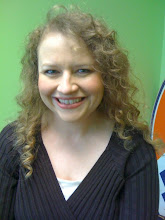That was four manuscripts ago, and while I know I have much to learn, I have picked up a few tips along the journey. Sometime last year I stumbled upon a great tutorial via Iain Broome over at the Write for Your Life website. He explained how using the Document Map feature in Word can help you organize your book. It was a revelation for this very basic Word user.
I can't afford fancy writing software at the moment, so I pretty much do everything in Word. Learning to use the Document Map feature has kept me from endlessly scrolling through acres of pages, trying to find out where a certain clue or character was introduced.
I find it also works well for my daily job. I've been able to organize 20 pages of a transcribed interview into a coherent white paper and wrestle a tangle of testimonials into a navigable document. I only wish I knew about it when I was writing my master's thesis. That would have saved me from several panicked moments. If you're a newbie like me trying to figure out how to organize your manuscript, I highly recommend heading over to Write for Your Life and checking out the video.
Do you use any special editing software? Have you learned any other tricks in Word that would help a writer out?



